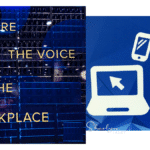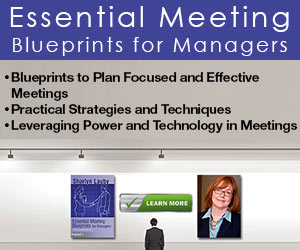Disrupt (definition): to break apart, to throw into disorder, to interrupt the normal course.
It’s the new corporate buzzword. First, we colored outside the lines. Then we thought outside the box. And now, we just disrupt. Personally, I just can’t get into the “disruption” concept. It’s probably old skool semantics but IMHO, disrupt has more than just a tinge of disrespectful in it.
I totally understand and embrace the idea of challenging conventional wisdom – the basis of disruption. Reminds me of Big Bang Theory’s 3 person chess. It’s fine to challenge the tradition without destroying the game.
(Enter sarcasm here.) The thing is, I’m not seeing employment ads for DISRUPTORS WANTED. I don’t hear about job descriptions adding disruption as an essential skill. And I haven’t heard of any company adding quality and quantity of disruption on their performance appraisals. I’ve also never had a hiring manager tell me they want more disruptors on their team.
Of course, I’m being very tongue and cheek here but, on some level, I think there’s a reason. Disruption isn’t a goal. It’s not a career strategy. If your goal is to shake up the status quo, you have to really know what you’re doing and carefully plan your thoughts and actions. You have to seek buy-in. You need to respect the past while sharing your vision for the future. And all of those things don’t actually fit with the perception of disruption.
Here’s a story. Years ago, I worked with a guy who totally and completely believed in shaking up the status quo. He was passionate about it. There were no sacred cows. It didn’t matter if the process worked or didn’t work. There was thrill to blowing stuff up (figuratively not literally). It didn’t stop with processes. People were subjected to it: pushed way beyond comfort zones, stressed to the max, and overwhelmed with change.
Was he a creative, charismatic leader? Yep. Did his disruption leave body bags all along the way? Yep. Was he ultimately successful as a disruptor? No, because his disruption wasn’t sensitive to the needs of people or the organization. After a short while, whenever people saw him coming, they ran the other way.
In the recent IBM CEO study, a quote captured it beautifully, “As CEOs open up their organizations, they are not inviting chaos. The need for control remains, but it is evolving into a new form – one better suited to the complexity and pace of business today.”
Something to consider: Do you want the leadership in your organization calling you disruptive? Or successful at creating change through innovative, collaborative leadership?







Mahesh Guruswamy says
Disruption works, when you have a valid business problem to solve. If your company has a valid problem (silo ed business units, outdated technology, etc) that has a direct impact on the company’s financials, I am all for disruption. But, it can only be done effectively from the inside out and not outside in. You can’t hire a ‘disruption’ consultant and expect to see anything good happen. Disruption needs to come from the leaders within the company. CIOs, CTOs etc. When ‘disruption’ is done well, the people in the company will not even notice that the status quo is being challenged. Think about this, Roy Fielding took on Sir Tim Breners-Lee (inventor of the world wide web) with his proposal on REST. If Roy hadn’t challenged the status quo (which was SOAP, which was backed by Sir Lee), we would never have seen the revolution in light weight services that are fueling the growth of mobile application development now.
Sharlyn Lauby says
Hi Mahesh. Thanks for sharing. I’m all for changing the status quo. My issue is with the concept of disruption. When I read your story, I don’t think disruption. I hear a story of effective change. It doesn’t sound as sexy or exciting as disruption but it’s more accurate.
I’m concerned that following a path of disruption can give leaders an excuse not to be sensitive to people and the operation.
Mary Wright says
In the olden days, we’d call your demolitionist a “disturber” (along with an impolite reference to a bodily function).
Michael Brisciana says
Sharlyn,
I very much agree with you. Inherent in the idea of disruption seems to be not only disrespect (for ideas, individuals, and things that might be working perfectly well), but also dysfunction. This comes through loud and clear in your story of the passionate disrupter … he didn’t bring people along with him, because that wasn’t really his intent from the beginning. This seems like the opposite of effective change management, as the “disruption” couldn’t then result in lasting change.
Perhaps where part of the “disruption” idea can play to the good is if it simply tries to get people “unstuck.” This seems, to me, to be a worthy goal for any number of reasons. But the key difference is in intent … it is helping people get unstuck so that they (as individuals and as an organization) can get to where they want and need to go. Without this intent, “disruption” (or any other similar buzzword or concept) is merely anarchy, a flurry of activity without purpose or meaning.
Michael
John@PGISelfDirected says
This is absolutely one of the most insightful posts I’ve ever come across today. Thanks!
Sharlyn Lauby says
Thanks for the comments! I’m glad to see I’m not the only one questioning the word.
I like Michael’s comment about getting “unstuck”. Recently, I discovered an iPad app called Unstuck that does just that…helps people identify what’s holding them back. You can check it out here: http://itunes.apple.com/us/app/unstuck/id478421271?mt=8
Chett Daniel says
First time commenter here.
Interesting insight on this buzz word and method of organizational change. Most people will resist disruption to the status quo unless they feel compelled to change because their own self interests are at stake. Disrupters can disrupt all they want, but if what they are seeking is positive change they need to look into research on organizational behavior and motivation. Leaders would be better served by setting goals for individuals that aligns to valued organizational goals or mission statements. Valued rewards could also be tied towards desired behavior, depending on the difficulty of the task. The biggest issue I have with disrupters is the havoc they cause to feelings of organizational justice. If you want to motivate employees to rally behind a new direction, they better feel like they are treated fairly in procedures in the work place. If a leader is stirring up the hornets nest just to hear a buzz, employees will catch on and performance will suffer. Just my two cents.
Sharlyn Lauby says
Well said, Chett. Thanks for tossing in your two-cents.
Kent Julian says
Great ideas here, Sharlyn. I really appreciate your point that as good leaders we should not be the source of disruption and fear; instead, we must be seen as people who empower others to move towards developing a positive wok culture we all can enjoy.
Marianne Griebler says
Brava on a great post. I’ve been baffled by this buzzword from the first time I heard it. For me, it’s not the sense of disrespect (although I can understand why it rubs you that way); it’s the whiff of chaos. And I’m so tired of colleagues who thrive on chaos simply because it’s a wonderful distraction from actually solving problems, getting work done, etc. You know what makes change happen in corporate cultures? Listening. Collaborating. Persuading. Being patient and respectful. Leading. And all that takes a LOT of time. Disrupters suggest that all you need to do is a light a fuse and toss the firecracker. They couldn’t be more wrong.
Mahesh Guruswamy says
Hmmm, why so much push back against sudden change? That is what disruption is all about, sudden change, instigated by the right agent and for the right purpose. Steve Jobs was considered a disruptor, would our planet be the way it is if Steve Jobs had paused, listened or tried to persuade everyone in his company who thought that going into the music business was bad for Apple?
Sharlyn Lauby says
Thanks for the comments!
@Kent – I like your differentiation between disruptive and positive. Very well-said.
@Marianne – You are so right about lasting change taking time. I’ve seen cases where fast-moving change didn’t stick because people didn’t have time to become comfortable with it.
@Mahesh – No big pushback about change. Sudden change can be valuable – although you do have to consider the possibility of people reverting back to old habits (see above) or, as in the post example, just leaving body bags if others aren’t prepared for the change.
I must say though, the mention of Steve Jobs was interesting. One of my LinkedIn groups just started a conversation about Jobs representing everything managers should not do (versus being recognized as role model).
Marianne Griebler says
Sharlyn, I’d love to see a post from you about Steve Jobs. The accolades he’s received as a manager have baffled me too. Don’t get me wrong. I own everything Apple and no one — I repeat, no one — will ever separate me from my iPhone. But as a someone charged with inspiring/mentoring/leading real-live people? Jobs apparently was the worst.
Sharlyn Lauby says
Marianne, thanks for the post idea. I love it when people ask me to write!
Mahesh Guruswamy says
I would love to hear why a visionary CEO who led 60k+ employees and the rest of the planet into the next generation should not be looked upon as a role model. Looking forward to your post Sharlyn.